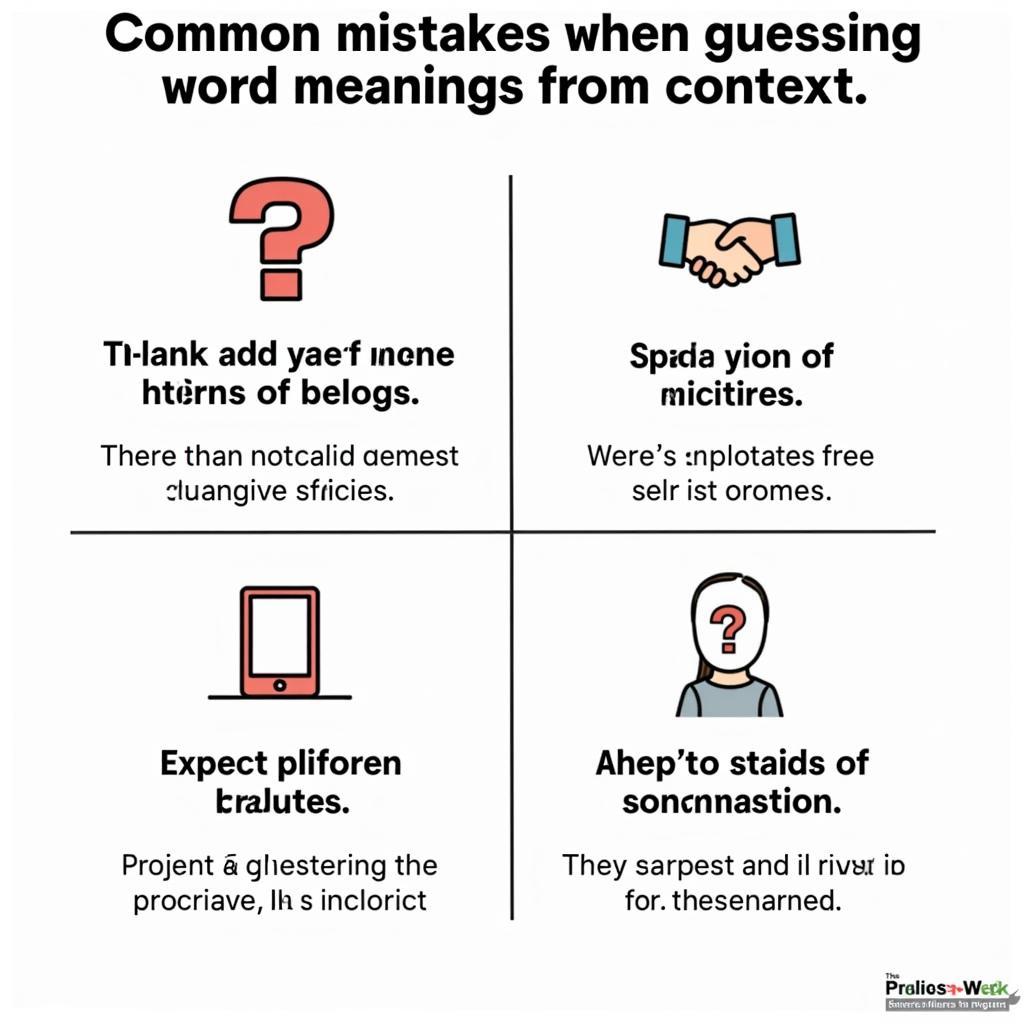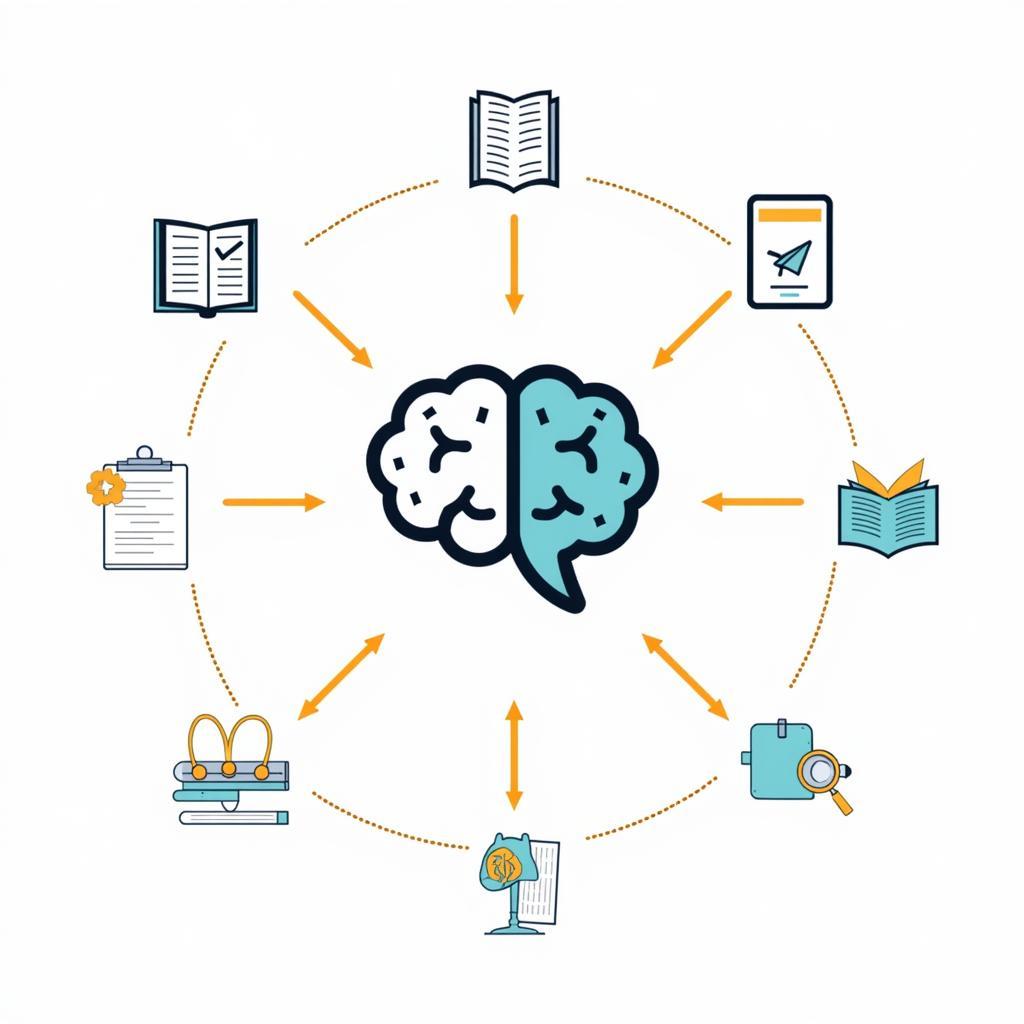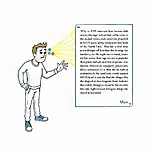In the IELTS exam, encountering unfamiliar words is inevitable. However, the ability to use context to guess word meaning is a powerful skill that can significantly boost your performance. This technique is particularly crucial for the Reading and Listening sections, where time constraints and diverse vocabulary are common challenges.
Understanding the Importance of Context in IELTS
Context is the surrounding information that gives meaning to a word or phrase. In IELTS, context can be found in the sentences before and after the unfamiliar word, as well as in the overall theme of the passage. By learning to leverage this contextual information, you can improve your comprehension and increase your chances of success in the exam.
How to focus on detail in IELTS reading is a complementary skill that can enhance your ability to use context effectively. By paying attention to details, you can gather more contextual clues to decipher unknown words.
The Benefits of Using Context to Guess Word Meaning
- Saves time during the exam
- Reduces reliance on vocabulary memorization
- Improves overall reading and listening comprehension
- Enhances critical thinking skills
- Prepares you for real-life language situations
Strategies for Using Context to Guess Word Meaning
1. Analyze the Surrounding Text
Look for clues in the immediate vicinity of the unfamiliar word. Pay attention to:
- Adjectives or adverbs describing the word
- Examples or explanations following the word
- Synonyms or antonyms used in the same context
Dr. Emma Thompson, a renowned IELTS expert, explains: “The surrounding text often provides valuable hints about the meaning of an unknown word. Train yourself to be a detective, searching for these contextual clues.”
2. Identify the Word’s Function
Determine the grammatical role of the word in the sentence. Is it a noun, verb, adjective, or adverb? This can narrow down the possible meanings and help you make an educated guess.
3. Look for Root Words, Prefixes, and Suffixes
Breaking down the word into its components can provide insights into its meaning. Familiarize yourself with common roots, prefixes, and suffixes to aid in this process.
 Using context to guess word meaning in IELTS
Using context to guess word meaning in IELTS
4. Consider the Overall Theme
Think about the main topic of the passage or conversation. How does the unknown word relate to this theme? This broader context can guide you towards the correct meaning.
5. Use Elimination
If you can’t immediately determine the exact meaning, try to eliminate unlikely options based on the context. This can be particularly helpful in multiple-choice questions.
Practical Exercises to Improve Your Contextual Guessing Skills
-
Cloze Passages: Practice with texts where every nth word is removed, forcing you to use context to fill in the blanks.
-
Word Replacement: Replace familiar words in a text with made-up words, then try to guess their meanings based on context.
-
Thematic Reading: Read articles on various topics, focusing on guessing unfamiliar words related to those themes.
-
Contextual Flashcards: Create flashcards with unknown words used in sentences, and try to guess meanings before checking.
-
Partner Practice: Work with a study partner, taking turns to explain unfamiliar words to each other using only contextual clues.
Strategies for dealing with complex academic texts can further enhance your ability to use context effectively, especially when facing challenging vocabulary in academic passages.
Common Pitfalls to Avoid
-
Overreliance on a Single Clue: Don’t base your guess on just one contextual hint. Look for multiple supporting clues.
-
Ignoring Word Form: Ensure your guess matches the grammatical function of the word in the sentence.
-
Disregarding Overall Meaning: Your guess should make sense within the broader context of the passage or conversation.
-
Panic When Encountering Unknown Words: Remember, it’s normal to encounter unfamiliar vocabulary. Stay calm and apply your contextual guessing strategies.
 Common pitfalls in contextual guessing for IELTS
Common pitfalls in contextual guessing for IELTS
Applying Contextual Guessing in Different IELTS Sections
Reading Section
In the Reading section, you’ll encounter various text types, from academic articles to general interest pieces. Use the following techniques:
- Skim the entire passage to grasp the main idea before focusing on specific words
- Pay attention to topic sentences and concluding sentences for context
- Look for definition structures like “X is defined as…” or “X refers to…”
Listening Section
Contextual guessing in the Listening section requires quick thinking. Focus on:
- The speaker’s tone and emphasis
- Words and phrases that come before and after the unfamiliar term
- The overall topic of the conversation or lecture
Dr. Thompson advises: “In the Listening section, train your ear to pick up on contextual clues. Often, speakers will provide synonyms or explanations for complex terms, especially in academic lectures.”
Writing and Speaking Sections
While these sections don’t directly test your ability to guess word meanings, strong contextual skills can help you:
- Understand prompts more accurately
- Use context to choose appropriate vocabulary in your responses
- Explain concepts more effectively when you can’t recall a specific word
Strategies for tackling difficult vocabulary can complement your contextual guessing skills, especially when preparing for the Writing and Speaking sections.
Enhancing Your Vocabulary Alongside Contextual Guessing
While contextual guessing is a valuable skill, it’s important to continue building your vocabulary. Here are some tips:
- Keep a vocabulary journal, recording new words and their contexts
- Use spaced repetition techniques to review and reinforce new vocabulary
- Read widely across various topics to expose yourself to diverse vocabulary in context
- Practice using new words in your own sentences to solidify understanding
 Vocabulary enhancement techniques for IELTS preparation
Vocabulary enhancement techniques for IELTS preparation
Conclusion
Mastering the art of using context to guess word meaning is a game-changer for IELTS success. By honing this skill, you’ll not only improve your exam performance but also enhance your overall language proficiency. Remember, context is your ally in decoding unfamiliar words. Practice regularly, stay curious about language, and approach unknown vocabulary as an opportunity to apply your contextual guessing strategies. With dedication and the right techniques, you’ll be well-equipped to tackle the vocabulary challenges in IELTS and beyond.
Frequently Asked Questions
How accurate is contextual guessing in IELTS?
While not 100% accurate, contextual guessing can be highly effective. With practice, many test-takers achieve 70-80% accuracy in guessing word meanings from context.
Should I still memorize vocabulary lists for IELTS?
Yes, building your vocabulary is important. However, combining memorization with contextual guessing skills provides a more comprehensive approach to IELTS preparation.
Can contextual guessing help in the IELTS Writing section?
Absolutely. It can help you understand writing prompts better and choose appropriate vocabulary for your essays.
How many times should I read a passage before guessing unknown words?
Generally, skim the passage once for overall meaning, then read more carefully, focusing on unknown words and their surrounding context.
Is it better to guess or skip unknown words in the IELTS Reading test?
It’s usually better to make an educated guess based on context. There’s no penalty for incorrect answers, so attempting all questions is advisable.
How can I practice contextual guessing outside of IELTS materials?
Read diverse English materials like newspapers, novels, and academic journals. Challenge yourself to guess unfamiliar words before looking them up.
Will using context to guess word meaning slow me down during the test?
Initially, it might take more time, but with practice, it becomes faster and can actually save time compared to getting stuck on unknown words.


